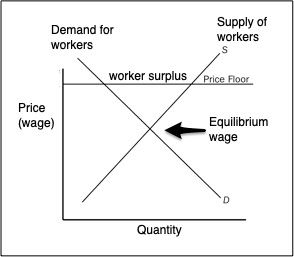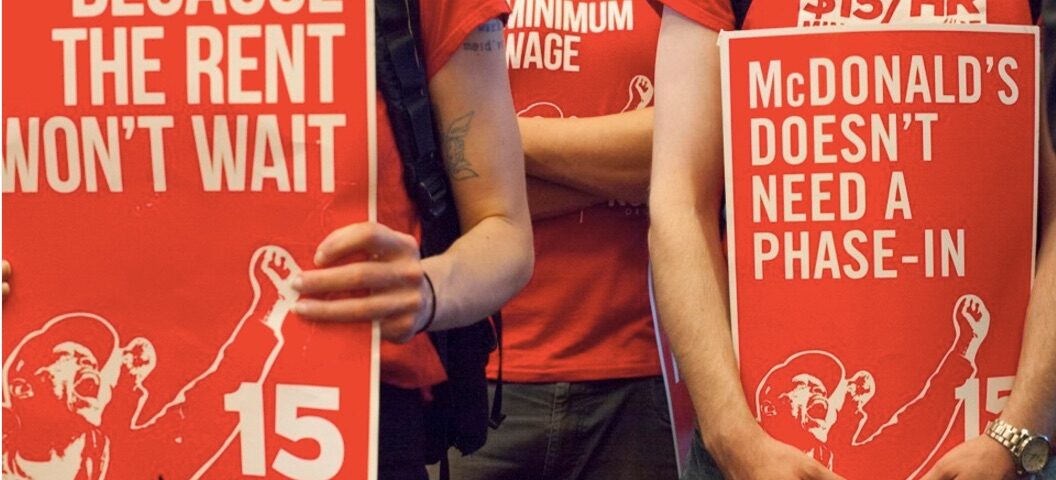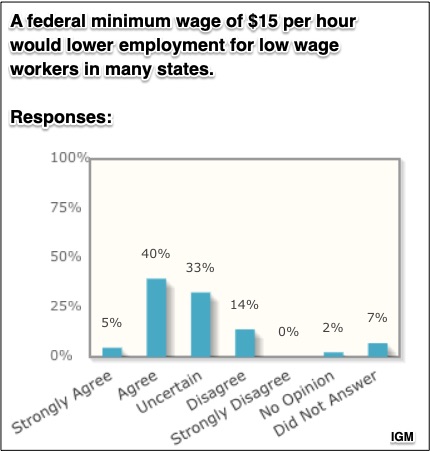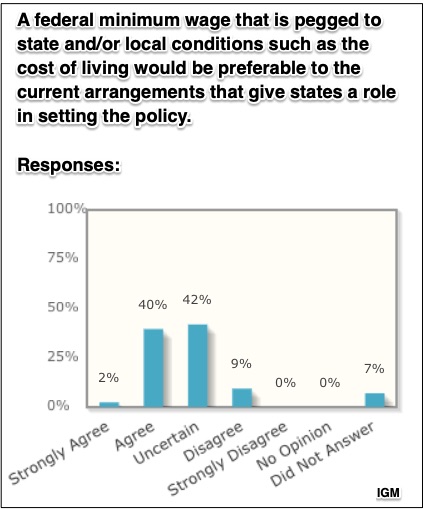
What We Need To Know About Decarbonization Policy
October 19, 2021
The Mystery of the Missing Tuna
October 21, 2021For years economists have disagreed about the impact of the minimum wage.
They still do.
A Minimum Wage Hike
Germany
In 2015, with wages sinking and too many workers taking home too little, Germany proclaimed an €8.50 minimum wage. The move surprised some policy watchers because they were used to collective bargaining. It also generated some alarm that low wage workers would lose their jobs.
Instead, the results were a bit more complicated.
Workers moved from smaller to larger establishments, from lower paying to higher paying jobs, and from less productive to more productive companies. The higher minimum wage elevated the skills level and the number of full time jobs while reducing turnover. People who were earning less than the minimum had a 6.7 percent wage boost. The net impact was more productivity and fewer small businesses. Because the smaller enterprises that were less productive could not survive, variety and competition suffered.
David Card
From Germany, this year’s Nobel Memorial Prize in Economics is a small leap.
One of three economists to win the 2021 Nobel Memorial Prize, David Card showed us that everyday examples could provide an economic lesson. In 1992, he and Alan Krueger observed that neighboring communities, in New Jersey and Pennsylvania, paid a different wage. Whereas New Jersey increased the hourly minimum wage from $4.25 to $5.05, Pennsylvania did not.
Comparing them, they concluded that a higher minimum wage increased employment. Their finding contradicted the message from a price floor that employment has to shrink because the quantity supplied of workers exceeds the number of jobs at that wage.
Below you can see the unemployment message from a traditional price floor that locates the minimum wage. Placed above equilibrium, the horizontal line showing the minimum wage price floor crosses demand to the left of supply. The result should be fewer jobs:

But Card and Krueger displayed that it need not be.
Our Bottom Line: The Minimum Wage Debate
Still though, the debate continues.
Asked for an opinion on raising the minimum wage, the IGM forum at the University of Chicago’s Booth School generated 40 responses from an auspicious group of economists. Mostly divided between agree and uncertain, the replies echoed the ongoing disagreement among economists. Oversimplifying, we can say that one group concludes the minimum wage impact is slight, a second cohort says there is job loss, and a third faction cites elevated productivity.
There were two IGM questions. The first expressed the possible negative impact of an increase:
The second question recognized cost of living differences:. Again, agree and uncertain were the dominant replies:
You can see why a Washington Post headline says that “Biden’s push for a $15-an-hour minimum wages faces strong headwinds in Senate.”
My sources and more: Happily, for today, three disparate studies converged. Germany’s minimum wage hike was described by Voxeu and FT. Next, I went to Tim Harford for a look at David Card’s Nobel and also returned to his 1992 paper. Then, finally, it made sense to look at the bigger picture through the IGM Forum.
![econlifelogotrademarkedwebsitelogo[1]](/wp-content/uploads/2024/05/econlifelogotrademarkedwebsitelogo1.png#100878)






